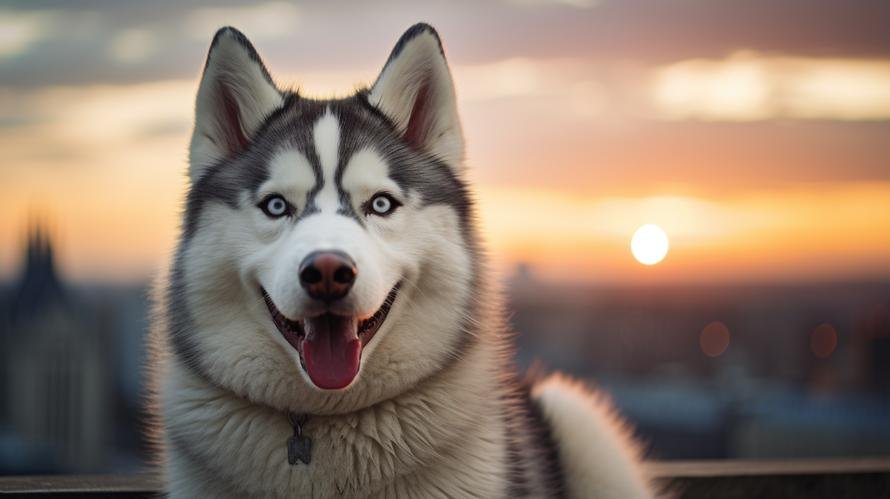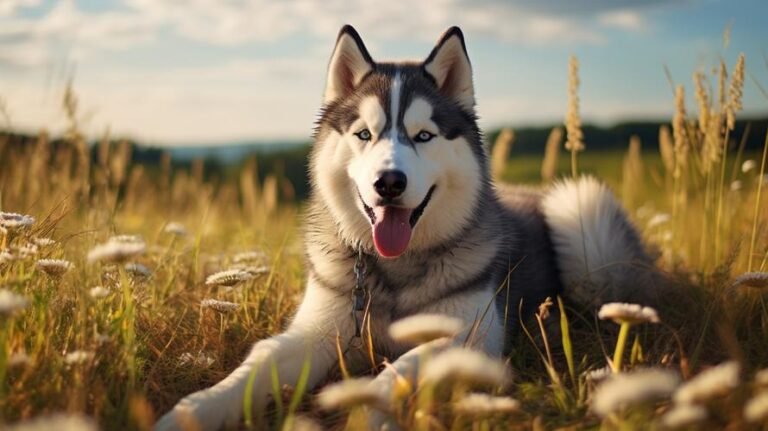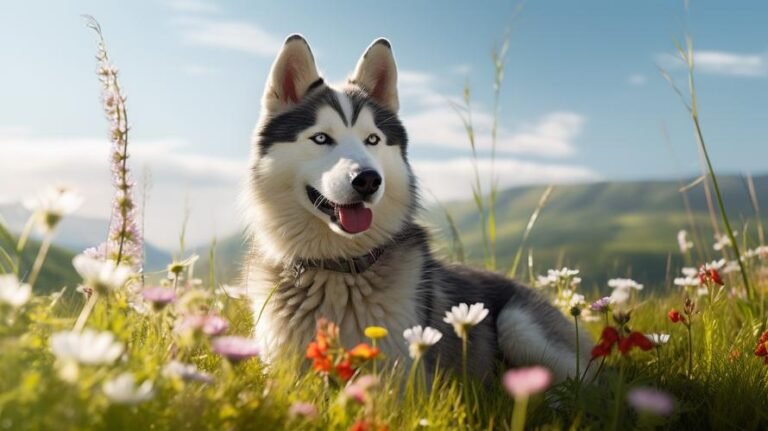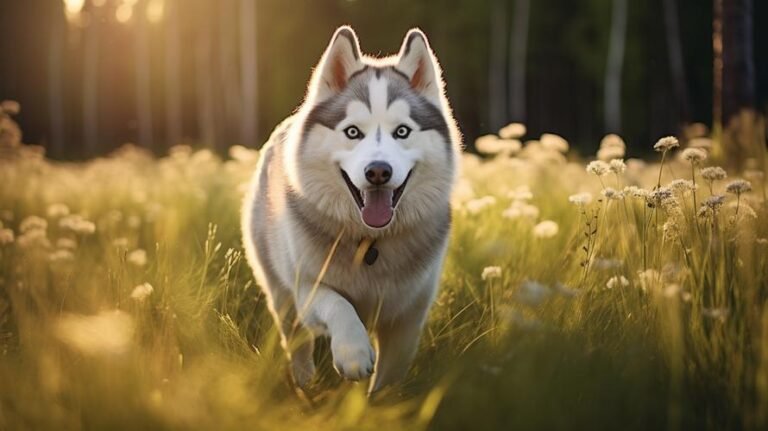Your neighbor Joe rings your doorbell and points towards a large, perky-eared dog romping around your backyard. It’s your Siberian Huskies: Olaf and Anna. “Are those guard dogs?” he asks, eyeing them nervously. You shake your head and say, “No, they’re Siberian Huskies.” “Good,” he sighs, visibly relieved. “In that case, they’re harmless then.”
But wait, are Siberian Huskies harmless? More importantly, can they guard your house or are they just big cushions of fur? Well, hold onto your leashes, because we’re about to dive deep into the world of our furry friends and reveal the answer!
To the untrained eye, Siberian Huskies, or Sibes, might seem like perfect candidates for guard dogs. They are large, athletic canines after all, with those piercing blue or multicolored eyes that can freeze anyone in their tracks. But is physical prowess enough? The surprising answer is: No.
Let’s first understand what makes a good guard dog. Guard dogs are supposed to protect assets, whether it’s a property, an individual, or a group. They possess certain traits such as a strong instinct to protect their territory and their pack, a high level of alertness to sense potential threats, a defensive nature, and the courage to act decisively when danger strikes.
Huskies, however, are known to be extremely friendly and sociable. They love human company and are very welcoming, even to strangers. This trait can be traced back to their roots in Northeast Asia, where they were raised in communal settings by the Chukchi people. Sibes were, and still are, sled dogs engineered for endurance, speed, and cooperation, not for protection.
Moreover, Huskies are not naturally suspicious. Unlike certain breeds like German Shepherds or Dobermans, which are cautious around unfamiliar people or situations, Huskies are likely to greet an intruder with a wagging tail and licks rather than barks or growls. So much for being a burglar’s nightmare!
Now for the positives. Huskies possess an extraordinary level of intelligence and are highly trainable. However, their independent and sometimes stubborn nature might pose a challenge, especially for first-time dog owners. They need a confident, persistent trainer who can establish themselves as the ‘alpha’ of the pack.
And then, there’s endurance. Lifetimes of pulling heavy sleds over long distances in sub-zero temperatures have produced dogs with a high physical stamina and an even greater resilience. These are useful traits for guard dogs, but without the proper protective instincts, they may not serve the purpose.
Another critical factor here is their unique ability to escape. You see, Huskies are expert dancers. You can find countless videos on the internet of Huskies easily jumping over fences, wriggling out of leashes or even opening doors! This talent doesn’t quite mesh with the job description of a guard dog!
Now, you may ask if we can train Huskies to be guard dogs. The answer is a careful ‘maybe’. Since Huskies are intelligent and highly trainable, they can be taught basic guarding principles. Please note though, teaching a Husky to protect your house doesn’t mean making them aggressive. It means refining their alertness, training them to bark on sensing unfamiliar presence, and teaching them to protect the people they love. Even so, their natural friendly and gentle nature may still override the lessons in a real-life situation.
In conclusion, Siberian Huskies are unlikely to make effective guard dogs. They are naturally affectionate, friendly, and far too welcoming to strangers to fulfill a watchdog role. However, their love for their family is undying and in unique situations, they might exhibit protective behavior. So while they might not guard your house, they most definitely will guard your heart.
Remember, every dog is unique and much of their behavior depends on their upbringing, environment, and individual personality. It’s always better to adopt a Husky for their companionship and loving nature, not for security purposes. Think of their potential for protectiveness as a bonus, not a guarantee. Because in the end, isn’t that delightful personality, the endless wolf-like howls, and the warm cuddles what makes us fall in love with them in the first place.
As you give Olaf and Anna an affectionate pat on their heads, don’t worry about them not being guard dogs. After all, there are plenty of alarm systems for that. Instead, enjoy their love, loyalty, and perhaps, their ineptitude at guarding houses. It’s all part of the Husky charm!



